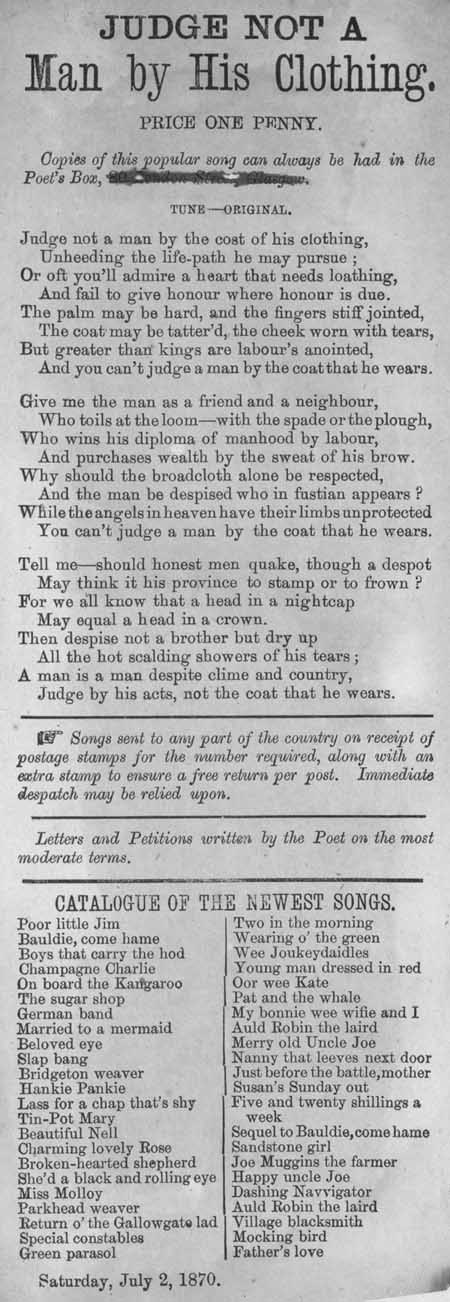Commentary
Verse 1: 'Judge not a man by the cost of his clothing, / Unheeding the life-path he may pursue; / Or oft you'll admire a heart that needs loathing, / And fail to give honour where honour is due. / The palm may be hard, and fingers stiff jointed, / The coat may be tatter'd, the cheek worn with tears, / But greater than kings are labour's anointed, / And you can't judge a man by the coat that he wears.' This broadside was published by the Poet's Box, Glasgow, and could be purchased for one penny. Below the song, the services of the 'Poet' - that is, the Poet's Box - are advertised and offered 'on the most moderate terms'. There was a Poet's Box in most of Scotland's major towns. Apart from publishing their 'stock' items, they also accepted commissions and provided struggling authors with the opportunity to have their work published cheaply.
The Poet?s Box in Glasgow operated from 1849 to 1911. Matthew Leitch was the proprietor at 6 St. Andrew Lane?s, a narrow street on the south side of Gallowgate, from 1850 to 1858. His son William Munsie Leitch worked at the same address from 1859 to 1865 and at varous addresses in London Street until 1911. Many of the broadsides published by the Glasgow Poet?s Box were dated and some carried advertisements, not just for printed items but also for shoe blacking and ?soap for lovers?! Like the other ?boxes? in Dundee and Edinburgh, the Glasgow one sold love songs, sea shanties, parodies and dialogues. It is not clear what the connection between the different Poet?s Boxes were. They almost certainly sold each other?s sheets. It is known that John Sanderson in Edinburgh often wrote to the Leitches in Glasgow for songs and that later his brother Charles obtained copies of songs from the Dundee Poet?s Box. There was also a Poet?s Box in Belfast from 1846 to 1856 at the address of the printer James Moore, and one in Paisley in the early 1850s owned by William Anderson.
Early ballads were dramatic or humorous narrative songs derived from folk culture that predated printing. Originally perpetuated by word of mouth, many ballads survive because they were recorded on broadsides. Musical notation was rarely printed, as tunes were usually established favourites. The term 'ballad' eventually applied more broadly to any kind of topical or popular verse.
View Transcription | Download PDF Facsimile
|
 |
Date of publication:
1870 shelfmark: L.C.Fol.70(125a)
 View larger image
View larger image
|


